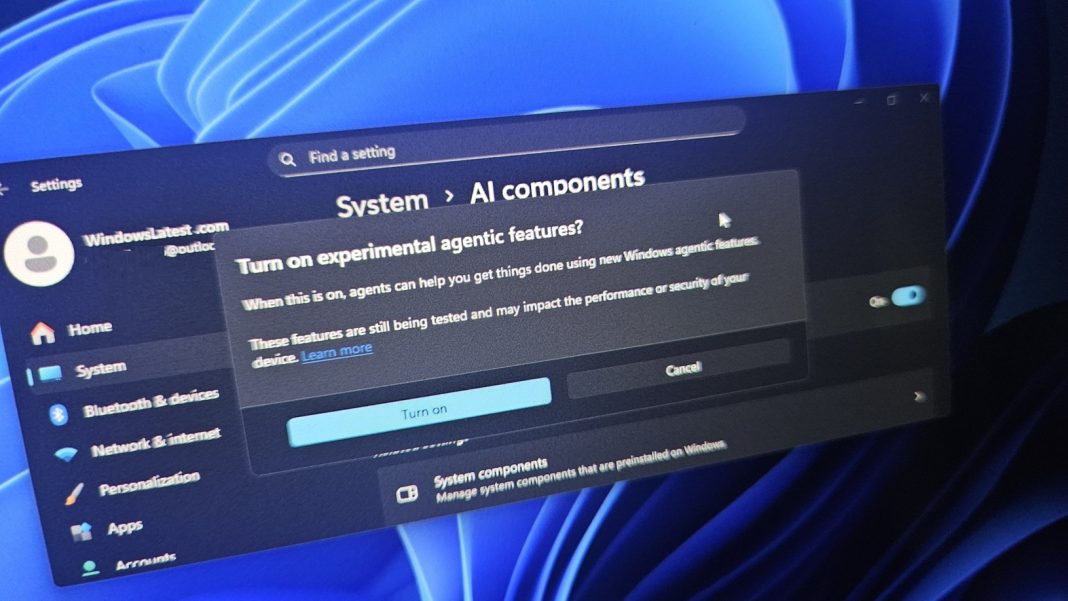The digital landscape is constantly evolving, and with it, the way we interact with our devices. Microsoft’s Windows 11 is poised for another significant transformation with the rumoured introduction of an advanced AI agent designed to run continuously in the background, potentially accessing personal folders to offer a more tailored and proactive user experience. While the promise of enhanced convenience is alluring, this development has sparked considerable discussion among cybersecurity experts, raising significant alarms about potential privacy breaches and security vulnerabilities.
Windows 11’s AI Vision: Seamless Integration, Hidden Risks?
Microsoft’s overarching strategy for Windows 11 appears to be deeply integrated AI, aiming to make the operating system more intuitive and anticipatory. This upcoming AI agent is envisioned as a personal assistant, learning user habits, preferences, and even context from documents, emails, and browsing history stored within personal folders. Imagine an AI proactively suggesting relevant files for your meeting, summarising lengthy documents, or optimising your workflow by understanding your current tasks – all enabled by its deep access to your digital life.
The core concept is to provide a “zero-effort” experience, where the AI works silently in the background, constantly processing data to provide timely and relevant assistance. For a country like India, with its rapidly expanding digital workforce and increasing reliance on personal computers for both professional and personal tasks, such an agent could dramatically boost productivity. However, this level of background operation, coupled with pervasive access to sensitive information like financial records, medical documents, family photos, and proprietary business data, brings forth a new spectrum of security challenges that demand careful consideration.
The Double-Edged Sword: Privacy and Security Implications
The primary concern revolves around the sheer volume and sensitivity of data that such an AI agent would continuously process. Granting an AI perpetual access to personal folders means exposing a user’s entire digital footprint to a single entity. Should this agent or the system it resides on be compromised, the potential for widespread data theft or misuse becomes alarmingly high. Traditional security models focus on protecting entry points; here, the “entry point” would be deeply embedded and constantly active.
Cybersecurity experts are flagging this as a significant attack vector. An AI agent designed to sift through personal data could become an invaluable target for malicious actors. If malware manages to exploit a vulnerability in the AI agent itself, or if a user’s device is compromised, an attacker could potentially gain unauthorised access to a trove of highly sensitive information, circumventing many existing security layers. The “always-on” nature means continuous exposure, making the system potentially vulnerable 24/7.
“While AI promises unprecedented convenience, we must approach deep system integration with caution. An AI agent running in the background with access to personal folders is a goldmine for cybercriminals if not secured with military-grade protocols. For Indian users, whose digital lives often intertwine personal finances, business operations, and sensitive family data on their home PCs, the implications for privacy breaches are profound. We need transparency, robust encryption, and granular user controls, not just blanket consent.” – Rohan Sharma, Lead Cybersecurity Analyst at SecureNet India.
Moreover, the question of data handling and storage becomes critical. Where will this processed data reside? How will it be anonymised, if at all? And how will it comply with evolving data protection laws, such as India’s Digital Personal Data Protection Act (DPDP Act), which mandates strict regulations around the collection, processing, and storage of personal data?
Navigating the New Digital Frontier: User Awareness and Best Practices
As Microsoft moves towards integrating such powerful AI features, the onus will increasingly fall on users to understand and manage their digital privacy. It is imperative that Microsoft provides clear, transparent explanations of what data the AI agent accesses, how it processes it, and robust controls for users to opt-in or opt-out of specific data access permissions. Default settings must prioritise user privacy.
For Indian users, developing a heightened sense of digital literacy will be crucial. This includes:
- Understanding Privacy Settings: Actively exploring and configuring the privacy settings associated with the AI agent and Windows 11.
- Strong Security Habits: Maintaining robust antivirus software, using strong, unique passwords, enabling multi-factor authentication, and keeping the operating system and applications updated.
- Critical Evaluation: Being discerning about the types of personal data stored on their primary device and understanding the potential trade-offs between convenience and privacy.
The promise of an intelligent, proactive operating system is undoubtedly exciting. However, the path to achieving this must not compromise the fundamental right to privacy and digital security. As Windows 11 integrates advanced AI, a balanced approach that prioritises user protection through stringent security measures, clear transparency, and robust user controls will be paramount.
The digital age demands not just innovation, but also unwavering responsibility from technology providers and informed vigilance from users. The future of computing is intelligent, but it must also be secure.




